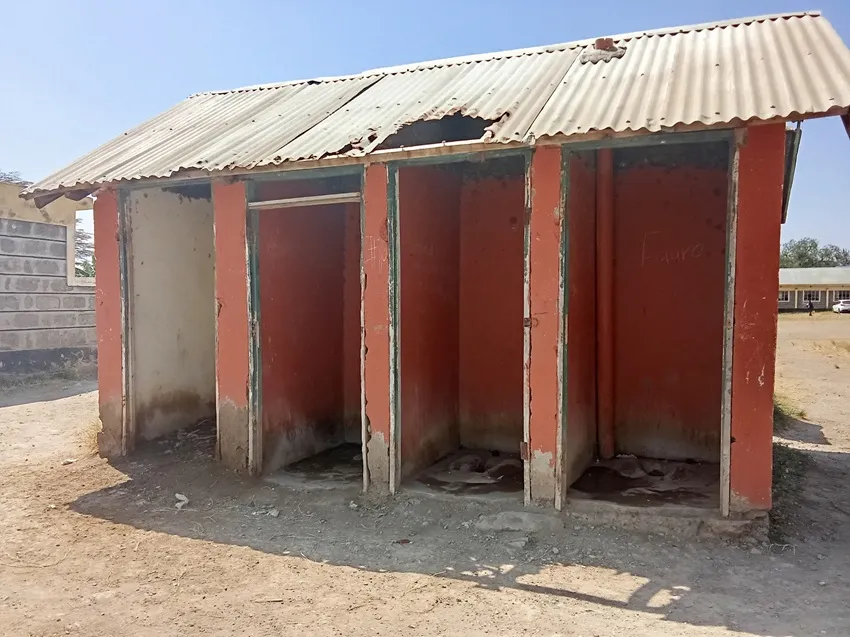At Kajiado’s GK Prison School, education is being overshadowed by a deepening sanitation crisis. With about 2,500 learners and only 16 pit latrines for boys and another 16 for girls, students face overcrowded, unhygienic facilities that fall far short of international health standards.
According to the World Health Organization (WHO), schools should provide at least one toilet per 25 boys plus one urinal for every 50 boys, and one toilet per 20 girls. At GK Prison School, each facility is shared by roughly 70 to 100 learners, more than triple the recommended ratio.
The strain is evident. Many toilets are almost full, with broken doors compromising privacy, and dusty conditions adding to discomfort. Located just two kilometers from Kitengela town, the school also struggles with water scarcity, forcing students to choose between queuing for long periods or resorting to unsafe alternatives.
For 15-year-old Johnstone Ouma, the school’s Education Minister, the problem is personal. “Our toilets don’t have doors; it is hard to relieve yourself with no privacy. We also have a scarcity of water,” he says. “Some of the taps we are supposed to use after visiting the toilet are broken.”
The lack of facilities forces younger pupils to urinate on walls or in bushes, both due to shyness and the long wait times. This situation, as student Scovia Akinyi points out, extends beyond inconvenience. “We don’t have water stations, and that leads to infections. The toilets are dirty, and girls are suffering some even with urinary tract infections (UTIs),” she says.
For adolescent girls, the absence of sanitary disposal bins adds another layer of indignity and risk. “When changing pads, you just have to throw them into the pit latrine. But it’s not safe or dignified,” Akinyi explains.
The sanitation crisis at GK Prison School underscores a broader challenge facing many Kenyan public schools inadequate infrastructure to support growing student populations. Without urgent intervention to improve hygiene facilities and water access, students’ health, dignity, and ability to learn will remain compromised.

